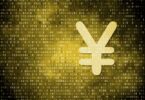Yesterday, the Shenzhen government launched a blockchain electronic certificate application platform based on the ‘i Shenzhen’ app, Xinhua reported. The platform features 24 commonly used electronic certificates enabling citizens to apply for various licenses via the app and to avoid carrying paper documents.
It will support online and offline licenses, authorization to obtain permits, no-criminal record certificate and birth registration, among many others.
When an individual is sent by a company to get a license or perform some other task, it’s often necessary to prove that the employee acts for the company and has the authority to do so.
Hence the authorization aspect refers to the use of blockchain by enterprises and individuals to allow others to obtain licenses on their behalf at specific times, occasions and for a particular use case. The system can automatically pull up and verify the credentials of both the parties — the applicant and a corporate authorizing the application.
Liu Jiachen, director of the Shenzhen Municipal Affairs Service Data Administration Bureau, said that blockchain for electronic certificates would ensure trustworthiness and traceability of a document and enhance the security and credibility of the system.
Additional functionality will be released next month for the platform that was developed by Ping An’s Smart City division.
Blockchain activity in China has spiked following the endorsement by President Xi Jinping. Many provincial governments have launched blockchain initiatives to simplify governance, among other things. In Shenzhen itself, the taxation bureau is using the technology to issue blockchain invoices.
China’s Zhejiang province is relying on blockchain to streamline healthcare services to its citizens. The blockchain e-bill platform was launched with support from Alipay and Ant Financial’s blockchain solution. Citizens can use the platform to make doctor’s appointments, pay the bills, get the prescriptions, take medicines and pick up tickets without queuing up at every step.
Meanwhile, a national blockchain framework is also taking shape in the form of Blockchain Service Network. This provides small companies and individuals with a platform to develop blockchain applications.







